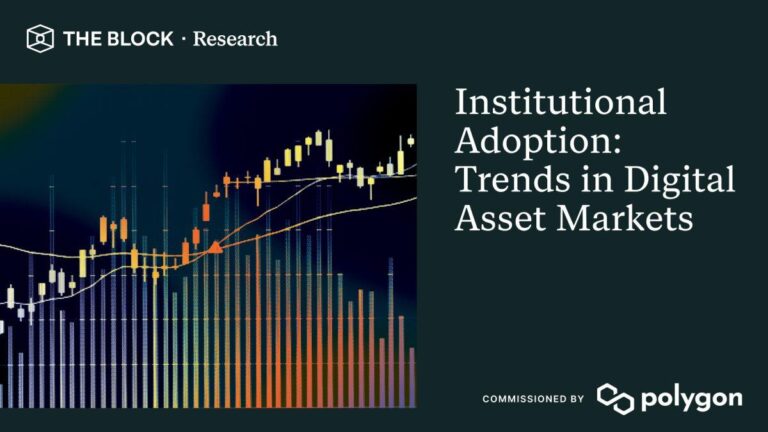The Asia-Pacific (APAC) region is witnessing a rapid acceleration in digital asset adoption, with Japan emerging as a clear leader in the evolving landscape. According to recent data highlighted by CoinGeek, increasing consumer interest, supportive regulatory frameworks, and growing institutional investment are driving a surge in cryptocurrency and blockchain technology integration across APAC markets. This trend signals a transformative shift as businesses and governments in the region embrace digital assets, positioning APAC at the forefront of the global digital economy.
APAC Digital Asset Adoption Surges Driven by Regulatory Support and Innovation
Across the Asia-Pacific region, digital asset adoption has witnessed unprecedented growth, fueled largely by progressive governmental policies and a burgeoning fintech ecosystem. Countries like Japan have set the pace by implementing clear regulatory frameworks that provide both protection and clarity for investors and developers alike. This supportive environment has encouraged major financial institutions and startups to innovate rapidly, integrating blockchain technologies into everyday financial services and retail platforms.
Key drivers behind this surge include:
- Robust regulatory clarity: Streamlined compliance processes bolster market confidence.
- Increased institutional participation: Banks and investment firms embracing digital assets.
- Technological innovation hubs: Accelerators and incubators accelerating blockchain development.
| Country | Adoption Growth (YoY) | Key Regulatory Initiative |
|---|---|---|
| Japan | 35% | Digital Currency Act enforcement |
| Singapore | 28% | Cryptocurrency Payment Licensing |
| South Korea | 22% | Blockchain Sandbox Programs |
Japan Emerges as a Regional Leader in Cryptocurrency Integration and Infrastructure
Japan’s proactive regulatory framework and robust technological infrastructure have positioned the country at the forefront of the cryptocurrency landscape in the Asia-Pacific region. By implementing clear guidelines for exchanges and digital asset service providers, Japan has created an environment that encourages innovation while protecting investors. This balance has resulted in a surge of domestic and international firms setting up operations, making Japan a pivotal hub for blockchain development, fintech partnerships, and digital asset trading. Additionally, government-backed initiatives aim to promote further adoption by integrating crypto solutions into public services and payment systems.
The nation’s commitment to infrastructure is evident through significant investments in blockchain research and collaborations with global tech companies. Key developments include:
- Expansion of regulatory sandboxes for testing new digital asset products
- Implementation of advanced cybersecurity measures to safeguard digital transactions
- Support for enterprise blockchain networks to enhance supply chain transparency
| Year | Crypto Exchange Licenses Issued | Blockchain Projects Funded |
|---|---|---|
| 2021 | 24 | 15 |
| 2022 | 30 | 22 |
| 2023 | 35 | 28 |
Strategic Recommendations for Businesses Navigating the Rapidly Evolving APAC Digital Asset Market
Businesses eager to capitalize on the burgeoning digital asset landscape in APAC should prioritize regulatory agility. With Japan setting the pace through clear digital asset policies and infrastructure investments, companies must adopt a proactive compliance approach to navigate varying regional frameworks. Key initiatives include:
- Engaging with local regulators: Establish open channels for dialogue to anticipate and influence policy shifts.
- Investing in scalable blockchain solutions: Ensure technology aligns with evolving standards and user demand.
- Educating internal teams: Develop expertise in digital asset management and risk mitigation.
Moreover, fostering strategic partnerships-both within and beyond borders-will position businesses to leverage cross-market opportunities effectively. A smart allocation of resources toward innovation hubs in countries with accelerating adoption rates, like South Korea and Singapore, can yield competitive advantages. The table below highlights critical focus areas aligned with market maturity and innovation readiness:
| Market | Regulatory Environment | Innovation Focus |
|---|---|---|
| Japan | Mature and Clear | Institutional Digital Assets |
| Singapore | Progressive & Adaptable | Fintech Integration |
| South Korea | Developing Frameworks | Consumer-focused Wallets |
Furthermore, forming strategic partnerships domestically and internationally is highlighted as a means to access cross-market growth opportunities. Targeting innovation hubs such as South Korea and Singapore can offer competitive advantages due to their accelerating adoption rates.
The accompanying table summarizes the maturity of regulatory environments and innovation priorities across key APAC markets:
| Market | Regulatory Environment | Innovation Focus |
|————-|————————–|—————————-|
| Japan | Mature and Clear | Institutional Digital Assets|
| Singapore | Progressive & Adaptable | Fintech Integration |
| South Korea | Developing Frameworks | Consumer-focused Wallets |
Overall, Japan leads in regulatory clarity, with a focus on institutional digital assets. Singapore offers a flexible regulatory climate geared towards fintech integration, while South Korea is progressing with developing frameworks emphasizing consumer wallets. Businesses should align their strategies accordingly to maximize success in these markets.
The Conclusion
As digital asset adoption continues to accelerate across the Asia-Pacific region, Japan’s leadership underscores the growing mainstream acceptance and regulatory maturity driving the market forward. With increasing institutional interest and government engagement, the APAC digital economy is poised for further expansion, positioning the region as a critical hub in the global blockchain and cryptocurrency landscape. Stakeholders will be watching closely as these trends unfold, shaping the future of digital finance in the years to come.




